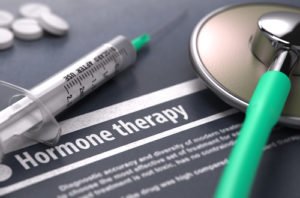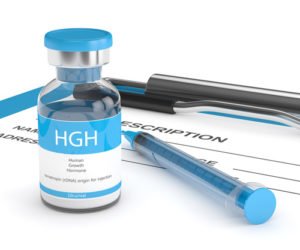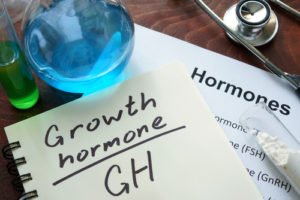
A person’s target thyroid-stimulating (TSH) level with no thyroid gland, according to Drug Design, Development and Therapy, will depend on whether they are a low-risk, intermediate-risk, or high-risk patient. They may have to take thyroid hormone replacement drugs for the rest of their lives if they had their thyroid surgically removed.
Blood tests may help to check TSH levels. Rather than measuring thyroid hormones triiodothyronine (T3) and thyroxine (T4) directly, someone can simply check how much TSH is in the bloodstream.
Low-Risk Patients
The target TSH level for a low-risk patient is the same as for a healthy person who has a thyroid gland, 0.5 to 2.0 milliunits per liter (mU/L). Sometimes an initial level of 0.1 to 0.5 mU/L is acceptable, even though these numbers are mostly below the normal range. If they respond well to treatment, however, their goal may rise to the normal range.
Intermediate-Risk Patients
If a patient has an intermediate amount of risk, an initial target may sit at 0.1 to 0.5 mU/L of TSH. If they respond far better than average to thyroid hormone replacement therapy, higher goals may prove appropriate, possibly even a target of normal levels for a person who has a thyroid gland.
High-Risk Patients
The doctor will try to achieve a delicate balance between providing enough thyroid hormone to the body for it to function adequately while not stimulating the growth of cancer cells. Initially, the goal will be to keep TSH levels below 0.1 mU/L. If a patient responds favorably to the thyroid hormone replacement therapy, they may shoot for a goal of between 0.1 and 0.5 mU/L.
Why Doctors Remove a Thyroid Gland
People need thyroid hormones throughout life, and the thyroid gland secretes these hormones. A surgeon may perform a thyroidectomy, according to Mayo Clinic, or a surgical removal of all or some of their thyroid gland, for several purposes including:
- Hyperthyroidism (an overactive thyroid gland): Thyroidectomy might be a viable treatment for a patient who has an overactive thyroid but experiences adverse reactions from drugs used to suppress thyroid activity and does not want to get treated with radioactive iodine.
- Goiter: This refers to an enlargement of the thyroid gland that is not malignant. If a patient has a goiter, they could develop problems swallowing or breathing. The goiter can become uncomfortable. Sometimes the enlargement kicks the gland into overdrive, causing the patient to be hyperthyroid.
- Thyroid nodules: Pathologists cannot always distinguish between malignant and non-malignant cells in a needle biopsy of thyroid nodules. If the nodules are suspicious, the surgeon might recommend the removal of the thyroid gland before cancer develops.
- Cancer of the thyroid: Thyroid cancer is the most common condition that leads to the removal of the gland.
If the doctor removes all of a patient’s thyroid gland, they will have to take thyroid hormone replacement therapy every day for the rest of their life. Sometimes the thyroid can still produce enough thyroid hormones after partial thyroidectomy.
For a free consultation, call (305) 682-1818
Symptoms of an Underactive Thyroid
After the removal of the thyroid gland, the patient has to take thyroid replacement drugs. Their dosage may be too low if they experience these symptoms, according to the National Institute of Diabetes and Digestive and Kidney Diseases:
- They become more sensitive to cold temperatures.
- They gain weight without changing their eating and activity habits.
- They are frequently tired.
- They develop new or worsening depression.
- Their hair starts to thin.
- They have changes in their menstrual periods.
- Their muscles ache.
They may have only one or two or all of these indications of low thyroid hormone levels.
How to Get Help for Low Thyroid Hormone Levels
HealthGAINS offers a series of specialized tests that we created to assess hormone levels accurately. If we diagnose a client as having hypothyroidism, we may design a customized treatment plan to get their thyroid hormones up to where they should be to function optimally.
Depending on their situation, sometimes we recommend a holistic approach, which can include modifications to their lifestyle and diet, as well as supplements. If appropriate, we may suggest other therapies and treatments. No one deserves to constantly feel exhausted and far older than their age, and they now have help to figure out why they feel this way. People deserve to be able to enjoy life and not have to sit on the sidelines.
The professionals at HealthGAINS want to help people feel more like themselves again. Call us today at (305) 912-8828.
Call or text (305) 682-1818 or complete a Free Consultation Form








